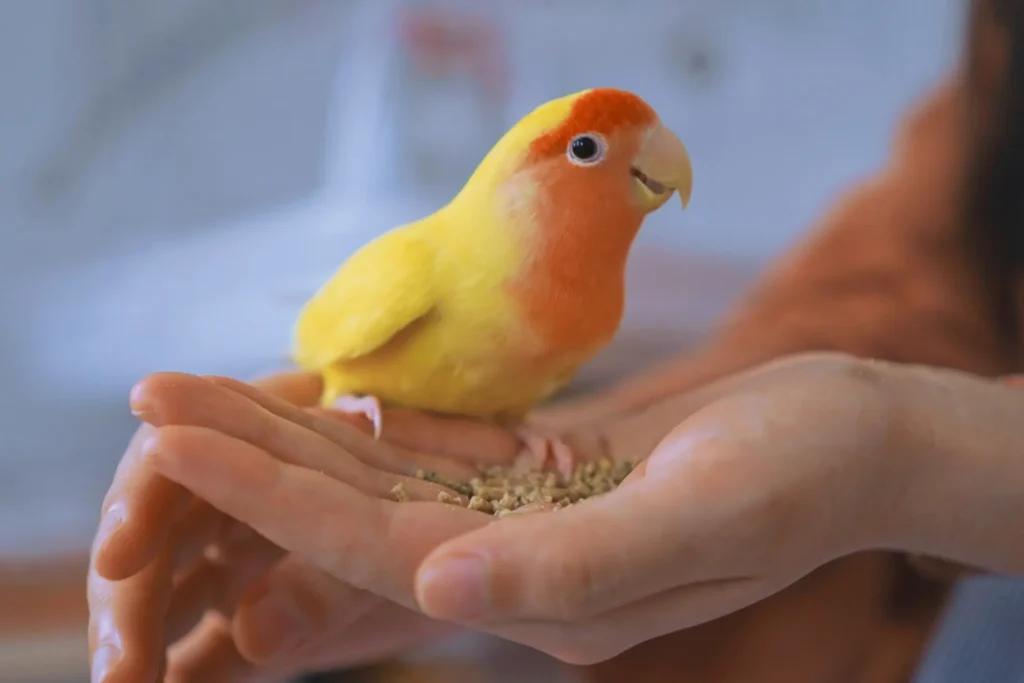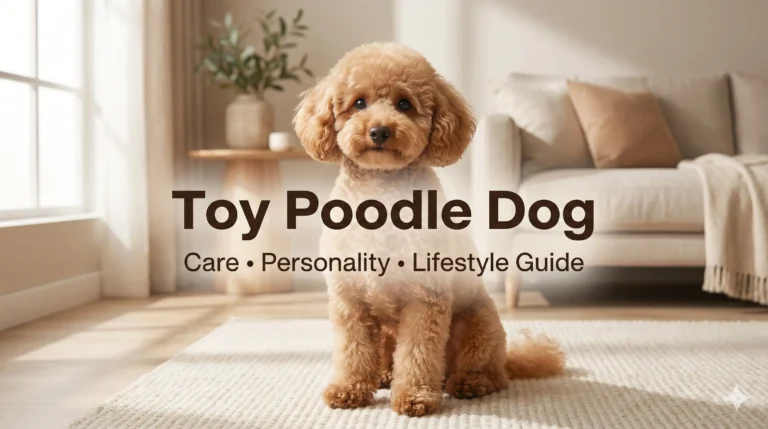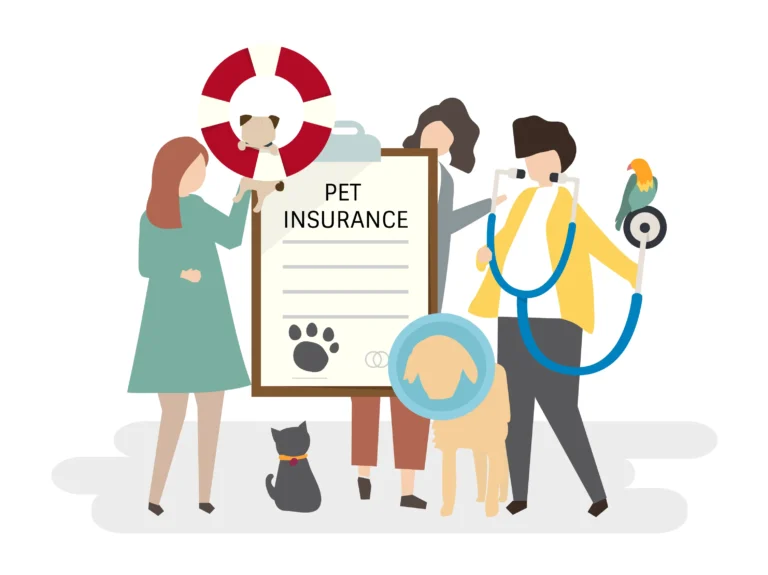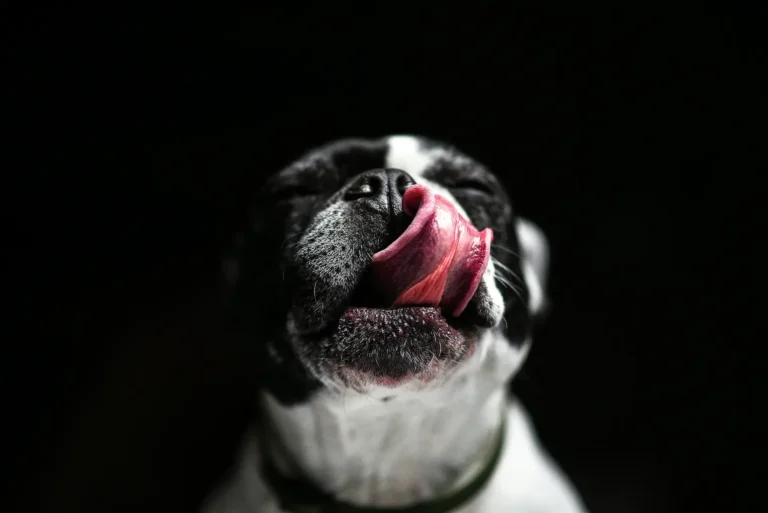True Cost of Owning a Pet Bird: Purchase, Care & Hidden Expenses
Here is a complete guide to you for cost of owning a pet bird from cage to care, food to vet bills. Learn about all the hidden expenses before bringing your feathered friend home.
You must have wondered how much it really costs to have a cheerful chirper at home? From the initial price tag to long term care, the cost of owning a pet bird is more than just buying a cage and seed. Whether you are eyeing a parakeet or an exotic parrot, you are financially prepared which ensures a healthy, happy bird and peace of mind for you.
In this blog this guide breaks down everything you need to know. From initial purchases, recurring pet bird care expenses and the often overlooked costs of exotic bird maintenance.
Initial Cost: How Much Does a Pet Bird Cost?
Most birds come in all shapes colors and price ranges. The cost of owning a pet bird depends greatly on species, breeder reputation and even location. Smaller birds are more affordable while exotic birds come with premium prices and sometimes paperwork or licenses too.
Common Pet Bird Price Ranges
- Budgies / Parakeets $15 to $40
- Cockatiels $80 to $150
- Lovebirds $100 to $200
- Macaws / African Greys $1,000 to $3,000+
These prices often don’t include DNA sexing health screening or registration which can cost another $50 to $150 depending on the species.
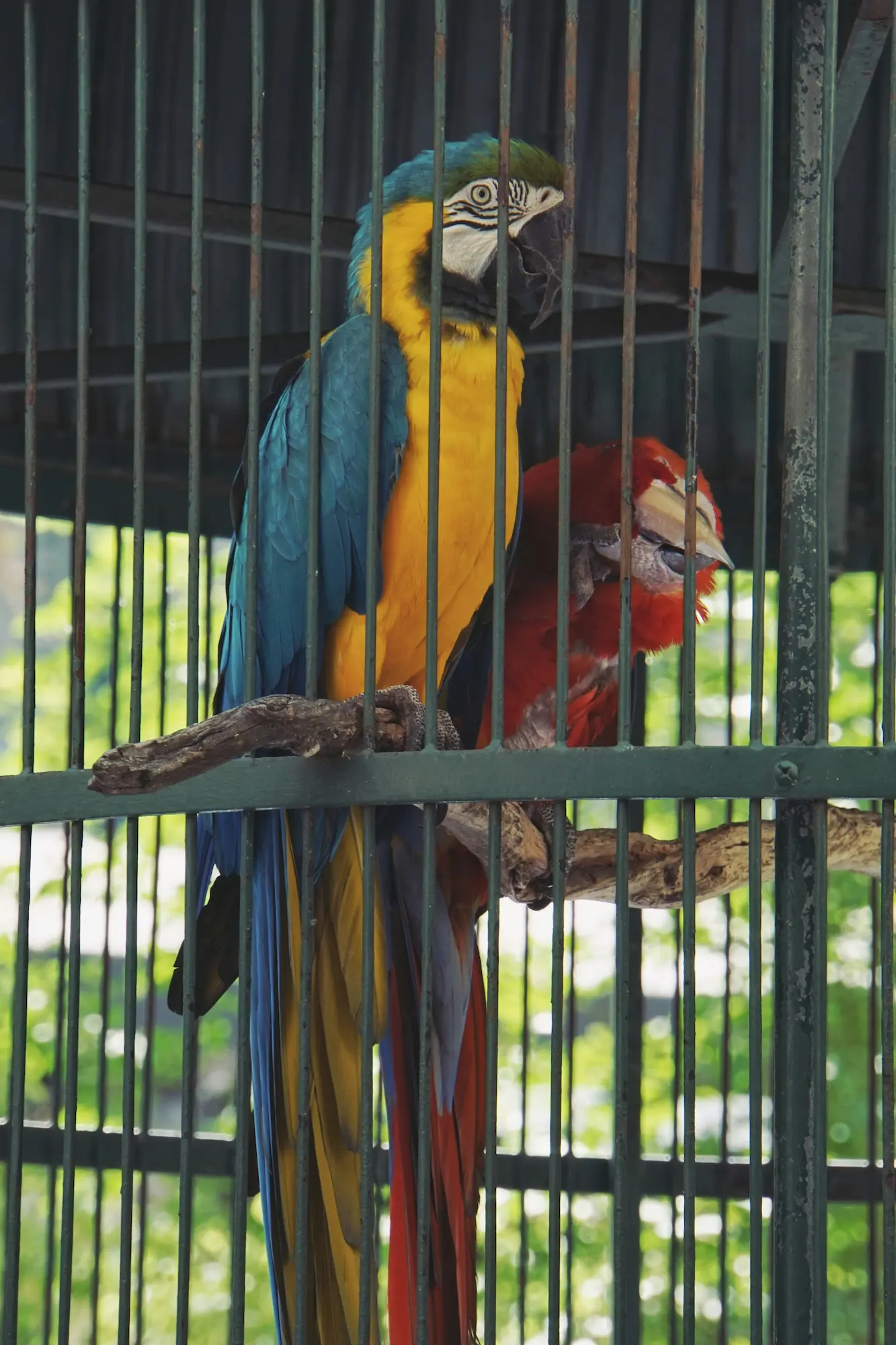
Image Credit: Jose Chinchilla
Housing & Bird Cage Cost
One of the most important and biggest investments upfront is the bird’s habitat. A cramped cage can cause behavioral problems and health issues. A good rule of thumb to own a bird is that your bird should be able to fully stretch both wings and hop freely.
Starter Setup Includes:
- Cage for small bird $50 to $150
- Cage for medium to large bird $200 to $800+
- Perches, ladders and swings $20 to $100
- Food and water dishes $10 to $30
- Cage cover and cleaning tools $20 to $40
Invest in a stainless steel or powder coated cage for durability. Cheap cages can rust and that can harm your bird over time.
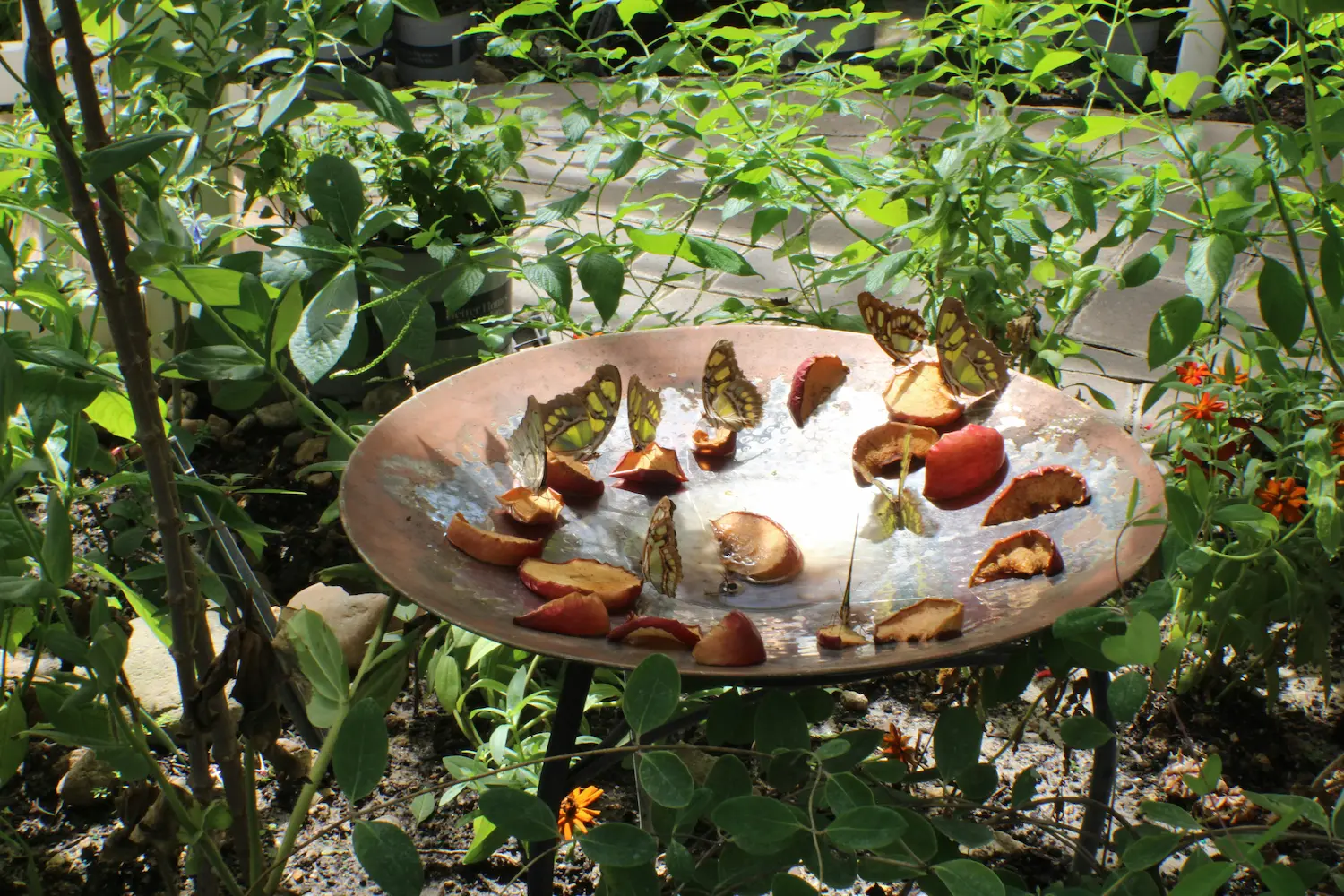
Image Credit: K Adams
Ongoing Pet Bird Care Expenses
when you own a bird, your bird’s monthly needs go beyond food. Mental stimulation, hygiene and fresh supplies are crucial. Depending on the species pet bird care expenses can vary between $25 to $100 per month.
Monthly Cost Breakdown:
- Food like seeds pellets fresh fruits & veggies $15 to $40
- Toys and boredom busters $10 to $30
- Cage liners, cleaning spray or substrate $5 to $15
- Grooming tools like nail file, beak wipes $5 to $10
Birds are always intelligent and social especially parrots. Try and rotate their toys weekly and include puzzle feeders or foraging toys to reduce stress and prevent feather plucking.
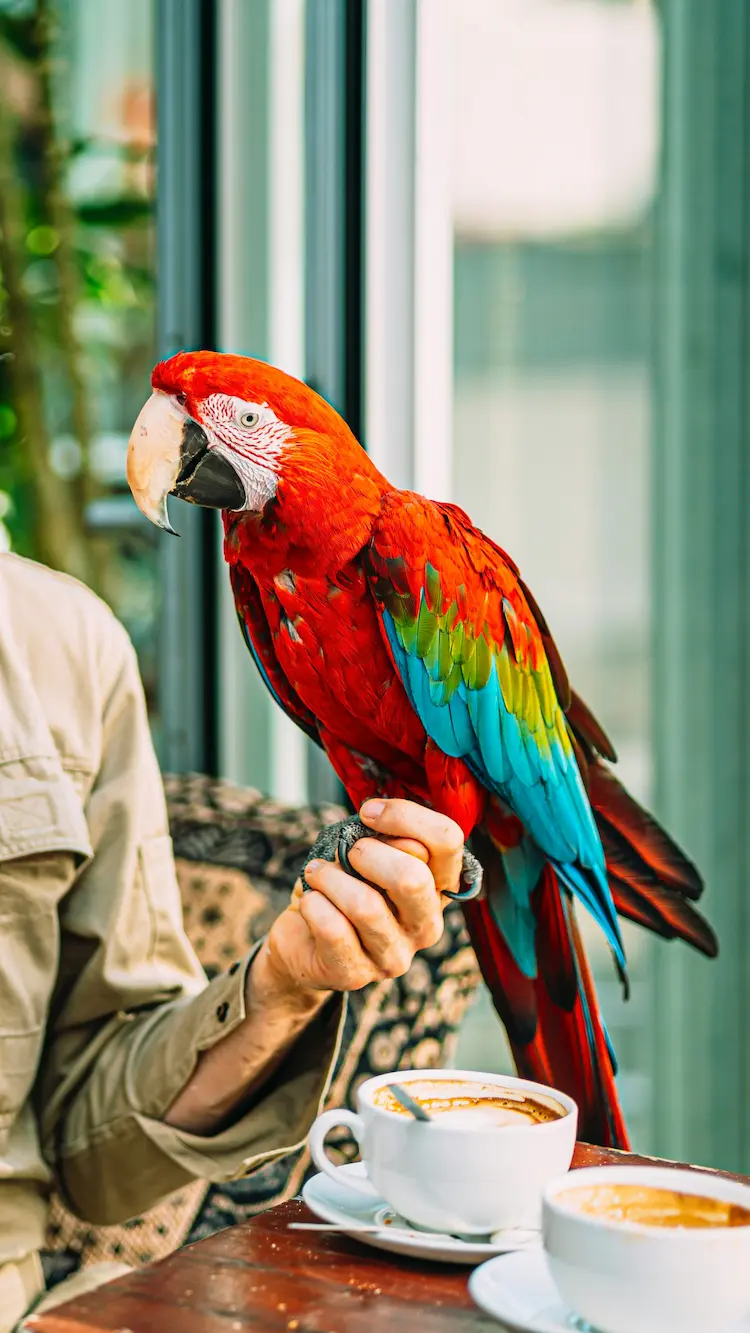
Image Credit: Raphael Renter | @raphi_rawr
Veterinary Care & Exotic Bird Maintenance Cost
Most avian veterinarians are specialists and charge their fees accordingly. Annual examination can range from $60 to $300. Emergency visits or lab tests may go beyond $500. That’s why exotic bird maintenance cost often surprises new owners.
Common vet expenses include:
- Annual check up: $60 to $150
- Fecal test or blood work $40 to $100
- Beak and nail trimming if needed $20 to $40
- Illness or emergency surgery $300 to $1,000+
Bird insurance plans ranges from $10 to $40 per month and may cover emergencies but not routine care.
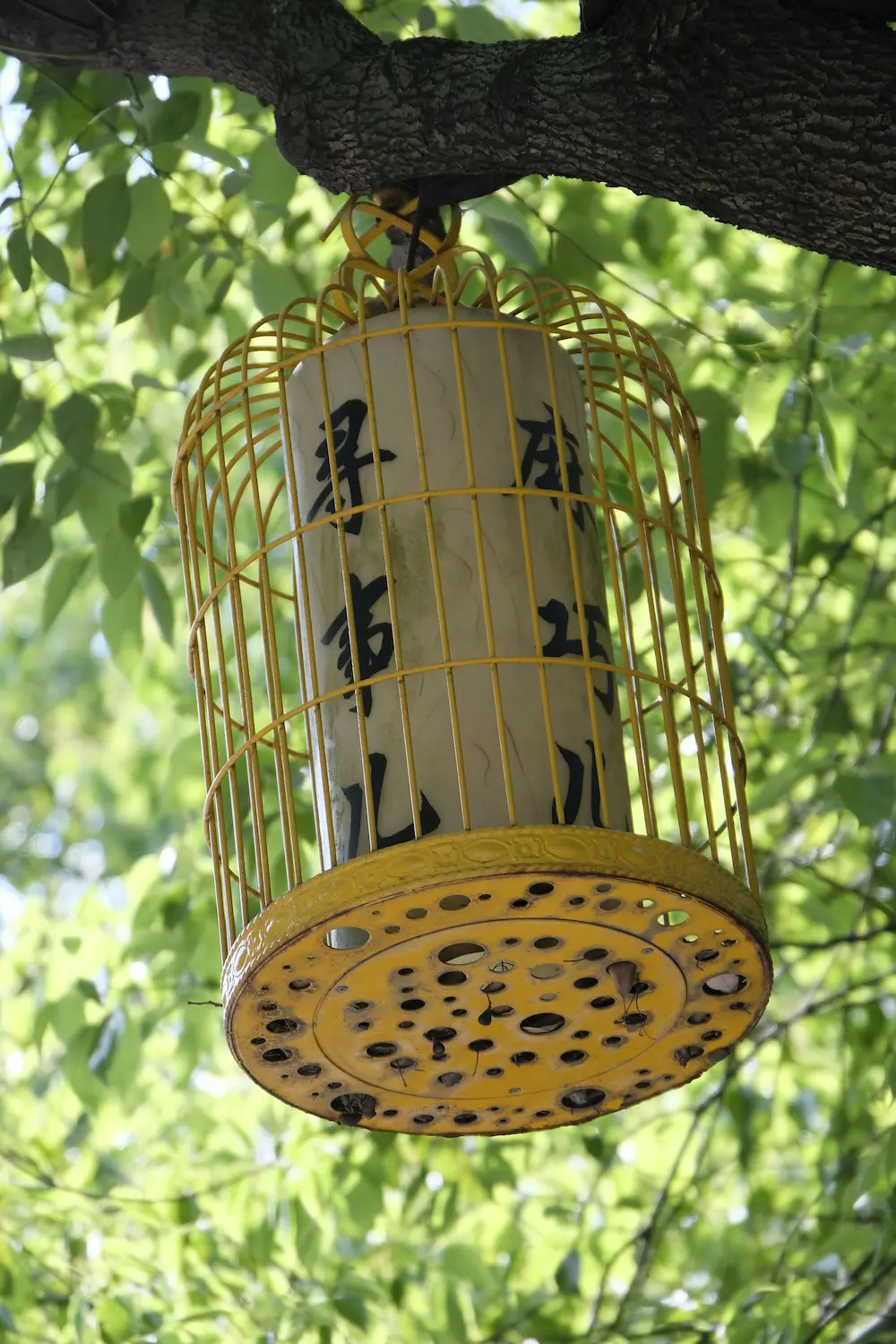
Image Credit: Wang Yan
Other Hidden or Occasional Costs
- Travel boarding or pet sitting $10 to $30 per day
- Avian behaviorist if needed $50 to $150 per session
- Licensing and permits for exotic species Varies by region
- DNA sexing or microchipping $30 to $100
Don’t forget that Some birds live 10 to 50 years. That’s a long term financial and emotional commitment. Make sure you are ready for the journey.
For longevity care tips, visit our guide on Pet Hospice Care. You can also read expert bird care advice from The Spruce Pets.
FAQs About the Cost of Owning a Pet Bird
Q1: What is the cheapest bird to own as a pet?
A: Budgies and finches are easiest to own and most affordable. They have low purchase costs and minimal maintenance expenses.
Q2: How often do birds need to visit the vet?
A: Atleast once a year is standard for check ups. But any change in appetite, droppings or behavior should prompt an immediate visit.
Q3: Can I save money with DIY bird toys?
A: Ya surely. Many bird owners create toys using cardboard rolls, sisal rope or untreated wood. Just ensure safety and non toxic materials.
Q4: Is bird insurance worth it?
A: For exotic or high value birds insurance need is a must . It helps cover costly emergencies. But weigh the premium vs. expected use based on your bird’s age and health.
Conclusion
While the idea of owning a bird may seem simple and easy, the full cost of owning a pet bird adds up quickly. From the cage setup to vet bills and mental stimulation to travel care. birds are delightful but demanding companions.
Be prepared not just with money, but with time and love. Do your homework, choose your species wisely and set up a care budget before your bird says its first HELLO 🐦
Disclaimer: This article may contain affiliate links. If you click and purchase, we may earn a commission at no extra cost to you. As an Amazon Associate, we earn from qualifying purchases.

